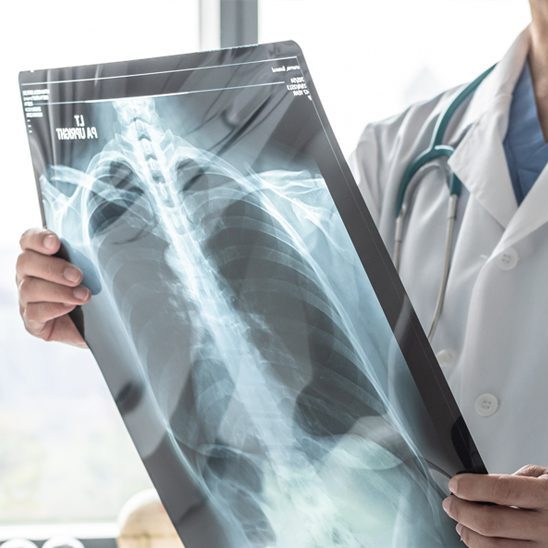WELCOME TO OUR
PULMONOLOGY DEPARTMENT
Welcome to the Pulmonary Medicine Department at Valiant Clinic & Hospital in Dubai. Our team of highly skilled pulmonologists specialize in the diagnosis and treatment of a wide range of respiratory conditions, including interstitial lung disease, acute respiratory distress syndrome, sleep disorders, acute lung injury, pulmonary hypertension, pulmonary fibrosis, and pulmonary vascular disease.

Our pulmonologists are specialized in internal medicine and are trained in sleep medicine as well, which allows us to provide a comprehensive approach to the diagnosis and management of sleep disorders such as sleep apnea.
Our department offers a full range of diagnostic and therapeutic services including pulmonary function tests, sleep studies, and bronchoscopy. A respiratory therapist and critical care specialist always work closely with our pulmonologists to provide the best care for our patients.
The pulmonology department at our hospital in Dubai is equipped with state-of-the-art technology and an intensive care unit that allows us to provide cutting edge care for patients with acute respiratory issues and other critical conditions.
We also provide smoking cessation therapy and treatments for lung infections, bronchitis, pneumonia, and other respiratory diseases. Our department is also specialized in the diagnosis and treatment of lung cancer and pleural diseases.
At Valiant Clinic & Hospital, our goal is to provide our patients with the highest level of care and expertise. You can rest assured knowing that the pulmonology department works closely with other specialists in the hospital to provide a comprehensive approach to patient care. If you or a loved one is facing a respiratory disorder, don't hesitate to contact us.
Our team of highly skilled pulmonologists will work with you to develop an individualized treatment plan that is tailored to your specific needs.
MEET OUR TEAM
Sorry, we couldn't find any posts. Please try a different search.
REQUEST AN APPOINTMENT
A member of our team will reach out to you & quickly get you booked in for an appointment with the most relevant member of our pulmonology team.
FREQUENTLY ASKED QUESTIONS
ABOUT PULMONOLOGY
What is Pulmonology?
Pulmonology is the branch of medicine that focuses on the diagnosis and treatment of conditions and diseases that affect the respiratory system, including the lungs, bronchial tubes, and other parts of the respiratory tract.
Pulmonologists are doctors who specialize in the care of patients with conditions such as asthma, chronic obstructive pulmonary disease (COPD), lung cancer, pneumonia, and sleep apnea.
They use a variety of diagnostic tools, such as pulmonary function tests, chest x-rays, and bronchoscopy, to evaluate and diagnose respiratory problems. They also use medical therapy and other treatments to help manage these conditions and improve the quality of life for their patients.
What is pulmonary vascular disease?
What is Lung Volume?
What are the most common respiratory disorders?
What is pulmonary hypertension?
When should I be worried about a chronic cough?
What pulmonology issues can affect respiratory tract?
Why is sleep study so important?
What is sleep apnea?
What do lymph nodes have to do with pulmonary health?
How can the health of lungs be measured?
What is Chronic obstructive pulmonary disease or COPD?
Should I be worried about Pneumonia?
What is Chronic obstructive pulmonary disease or COPD?
How does Asthma affect pulmonary health?
PARTNERING WITH LEADING
MEDICAL INSURANCE PROVIDERS
We work with leading medical insurance providers in the country, if you have any questions or queries just give us a call on 8008254268.














